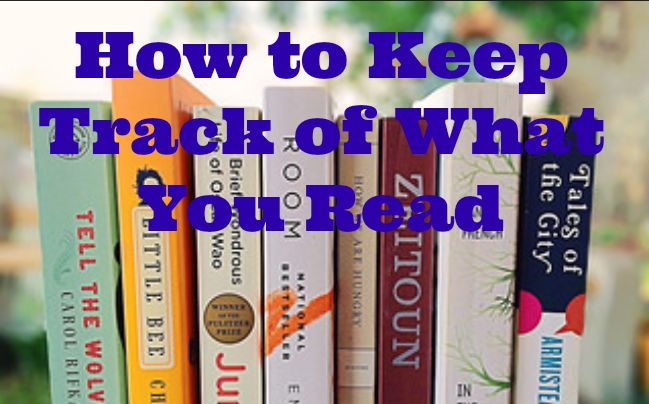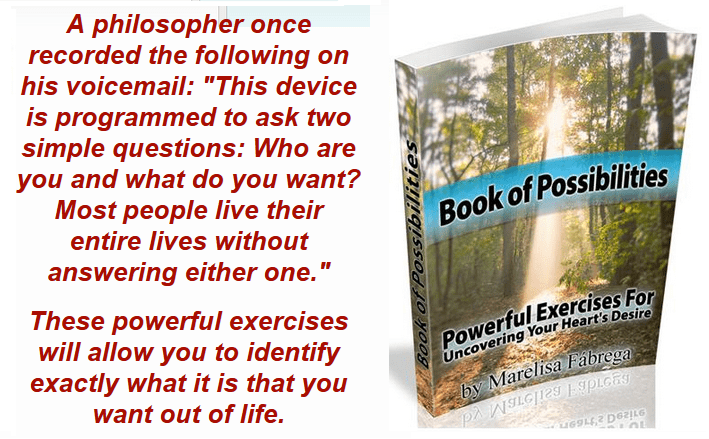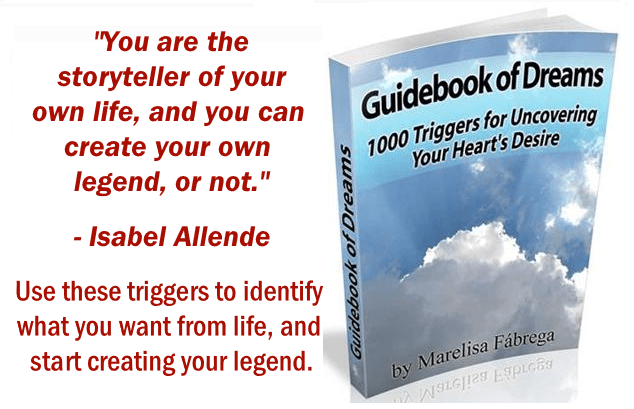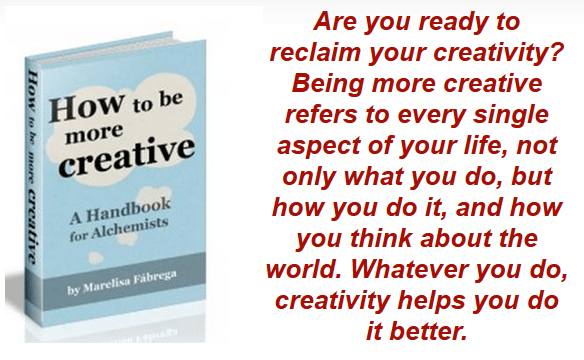
Enhance your reading experience by keeping track of what you read.
The other day I came across the name “Federico Garcia Lorca”. When I saw it I thought to myself, “That name sounds familiar”. Since I couldn’t remember who he was, I Googled him. It turns that he was the most important Spanish playwright of the 20th century. His most important works were “Yerma”, “Blood Wedding”, and “The House of Bernarda Alba”.
 That’s when it clicked: I recognized his name because I read his plays in high school. At that moment I even saw an image of my high school Spanish teacher’s face in my mind. However, I couldn’t remember anything about the plays. Nothing, not a word, zero, zilch, zip, nada . . . This realization made me come to the decision to start keeping track of the books that I read. That way, I can go over my notes every so often to keep the books that I’ve read fresh in my mind.
That’s when it clicked: I recognized his name because I read his plays in high school. At that moment I even saw an image of my high school Spanish teacher’s face in my mind. However, I couldn’t remember anything about the plays. Nothing, not a word, zero, zilch, zip, nada . . . This realization made me come to the decision to start keeping track of the books that I read. That way, I can go over my notes every so often to keep the books that I’ve read fresh in my mind.
In case you’ve thought of doing the same—or have just thought of it now that I’ve mentioned it—below you’ll discover 12 ideas on how to keep track of what you read.
1. Keep a Book Log. The most basic way of keeping track of what you read is simply to keep a book log or a spread sheet. Every time you read a book, record the following: the book’s title; the author; the date it was published; the length; the genre; when you started reading it; and when you finished the book.
2. Add a Rating System. In addition to the information above, you can add a rating system so you can keep track of how much—or how little–you enjoyed the book. You can rate the book from 1 to 5, or you can copy Amazon’s star system. If you want to take things a step further, rate the book on different elements. Here are some examples:
- Rate character development from 1 to 10.
- Rate the book’s pace from 1 to 10.
- Rate the quality of the writing from 1 to 10.
- Rate plot development from 1 to 10.
- Rate how much you enjoyed reading the book from 1 to 10.
3. Add Additional Tidbits. Along with the basic tracking information, you can add additional tidbits about each book you read, such as the following:
- Why did you decide to read the book?
- Where were you when you read it?
- Would you like to read more books by the same author? If so, which ones?
- Did the book inspire you to find out more about a specific topic?
- Do you know someone who would love this book?
- What’s the author’s nationality?
- What language was the book originally written in?
- Has the book won any awards?
4. Write a Book Summary. Another option is to write a summary of each book that you read. When you’re done reading the book, close it, and write down what you recall. You can include a plot summary, something about the characters and the setting, and also record your opinion of the book. Try giving yourself a word limit such as 400 or 750 words.
5. Write an Amazon Review. If you want to take things a step further, every time you finish reading a book, log into Amazon and review the book. Try to be as helpful as possible so that others can make an educated decision on whether or not to buy the book based on your review. Whenever you want to look back at what you’ve read, simply look over your Amazon reviews.
6. Keep a Book Quotes Journal. Whenever you find a fantastic sentence, or paragraph– in a book that you’re reading, add it to your book quotes journal. As an illustration, when I read “Macbeth” by William Shakespeare, I wrote down the following quotes:
- “Come, you spirits that tend on mortal thoughts, unsex me here, and fill me from the crown to the toe top-full of direst cruelty!” – Lady Macbeth
- “Look like the innocent flower, but be the serpent under ‘t.” – Lady Macbeth
- “Something wicked this way comes.” – The Witches
7. Track Your Books on Goodreads. Although I’m not currently on Goodreads, I understand it’s a fantastic platform for book lovers. Goodreads allows you to do all of the following:
- Track the books that you’ve read, are reading, and want to read.
- You can rate books and review them, as well as get recommendations on what to read next.
- In addition, you can see book reviews and updates from your friends, and comment on them.
And, there’s even an app!
8. Try Your Hand at Literary Criticism. Use a notebook not only to keep track of what you’ve read, but also to sharpen your literary criticism skills by writing in-depth book reviews. Why go through the trouble of doing this? In order to better appreciate and understand the books that you read.
Ask yourself questions such as the following:
- What‘s the plot?
- How does the main character—or the hero—evolve during the story?
- What is unique about the main character?
- What’s his or her major character flaw?
- What are the challenges that the main character faces?
- Is there an antagonist?
- Who are the secondary characters? What purpose do they serve?
- What is the relevance of the setting? How does it affect the theme or the mood of the book? Does the setting symbolize the emotional state of the characters?
- What is the main conflict in the story? How does the conflict develop? What’s the climax? How is the conflict resolved?
- Who is telling the story — what point of view does the author use?
- What’s the main theme? Are there other themes?
- Does the author use foreshadowing – does the writer clue the reader in to something that will eventually occur in the story?
- Does the author use symbolism? Symbolism is when an object is meant to be representative of something or an idea greater than the object itself. For example, in “The House of Bernarda Alba” the weather—that is, the heat—symbolizes passion and sexual frustration.
- Is the book an allegory? An allegory is an extension of a metaphor. For example, “Animal Farm” by George Orwell is an allegory of the events leading up to the Russian revolution (something I was very surprised to discover many, many year after having read the book).
9. Get Yourself a Book Journal. In order to keep track of the books that you read, you can simply use a Moleskine or any other notebook that you have lying around. However, you can also get yourself a book journal. Here are three popular choices:
- Reading Journal: For Book Lovers
- The Book Lover’s Journal (Reading Journal, Book Journal, Organizer)
- Moleskine Passion Journal
10. Research the Author. Most of the time, an author’s life experience will have an important impact on their work. Therefore, while you’re keeping track of, and analyzing, a book that you’ve read, it’s a good idea to do some research on the author.
For example, Colombian Nobel Laureate Gabriel Garcia Marquez wrote a book titled “No One Writes to the Colonel” which is about a colonel who waits his whole life for a pension from the government that never came. In many ways, Garcia Marquez was writing about his own life.
First, Garcia Marquez lived with his grandparents until he was eight years old. His grandfather was a colonel who constantly complained about the government pension that had been promised to him, but which never came.
Second, the book depicts the extreme poverty that the elderly colonel and his asthmatic wife lived in after their son was killed. In an interview, Garcia Marquez explains that in the book, he was describing the poverty that he himself lived in while he was stationed in Paris after the newspaper that he worked for was shut down.
Knowing these things about Garcia Marquez made his book come alive for me.
11. Start a Book Blog. One way to keep track of the books that you read is to start a blog. Choose a blogging platform, think of a great name for your blog, and start posting your book reviews online. Whenever anyone asks you to a recommend a book, simply direct them to your blog. And, who knows, you might just build yourself a nice following.
12. Keep a Books-to-Read List. In the back pages of your book journal or notebook, keep a list of the books that you want to read. Every time you hear of a book that sounds interesting, add it to your list. You’ll never again find yourself sitting there wondering, “What should I read next?”
Conclusion
So little time, so many books to read! You certainly don’t want to take the time to read a book, and then promptly forget that you read it and/or what it’s about. Live your best life by keeping track of the books that you read.





Related Posts:




 Marelisa Fabrega is a lawyer and entrepreneur. She holds a Bachelor of Science in Business Administration from Georgetown University in Washington, D.C., as well as a Juris Doctor from the Georgetown University Law Center. You can learn more about her
Marelisa Fabrega is a lawyer and entrepreneur. She holds a Bachelor of Science in Business Administration from Georgetown University in Washington, D.C., as well as a Juris Doctor from the Georgetown University Law Center. You can learn more about her 





